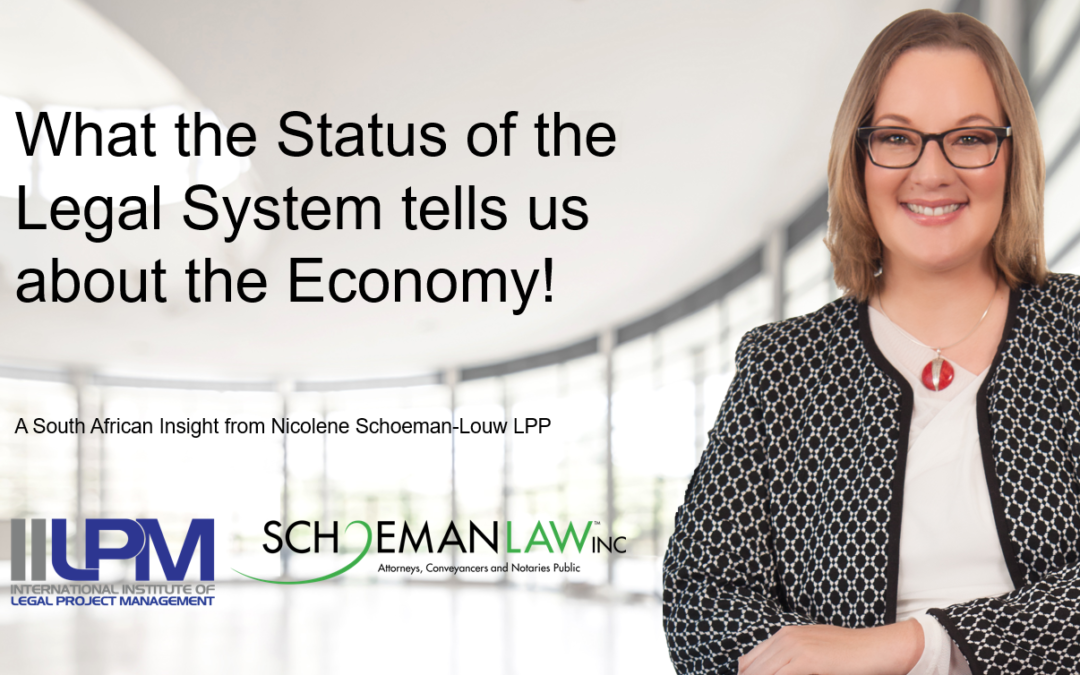The question is often posed as to the correlation between access to justice and the economic health of a community, society and country.
There are several interesting studies on the topic, including one from the Organisation for Economic Co-operation and Development (OECD) that published a paper in 2016, that makes the point, “There is growing evidence that justice systems and the rule of law contribute to sustainable development and inclusive growth.” The point is that legal assistance can support individuals and families in resolving their legal and social needs, obtain access to opportunities, and become total participants in the community and economy.
In addition, studies have shown that in addition to individual issues relating to inequality such as family matters, employment and land rights issues, there is also a direct correlation to how businesses decide to invest and enter contractual relationships. As such, it is not just a reactive indicator, but a predictor of future opportunities in many ways.
Consider the link between legal statistics and the state of the economy. Measuring activity within the justice system could give us critical insights into the state of the economy or the participation therein. In South Africa, Statistics SA had indicated that the net profit before tax in the formal business sector tumbled by 33,4% in the financial year 2020 compared with 2019. Things have been challenging in South Africa, with record-high unemployment rates (officially around 34% towards the end of 2021 whilst we have always dabbled in the mid-twenty to high twenty percentile ranges). This is in addition to a barely expanding economy. In 2022, the economy is estimated to grow 2.1% and 2.0% in 2023.
On the other side of the numbers, if we look at the official statistics of civil cases (debt collection) in South Africa, the average caseload fluctuation has recently been below 0% or around 15% in a year. However, by April 2021, we saw the official civil case statistic jumping to a record high of 416% and 115% in judgements taken. This indicates what we see in the economic statistics of unemployment or shrinking opportunities resulting in default.
Reflecting on my own law firm, I will state that over the financial years of 2019/2020 and 2020/2021, we have experienced significant increases in:
- Employment disputes
- Retrenchments
- Debt Collection
- Liquidations
And a sharp decrease in commercial transactions, painting a dire picture.
For many legal professionals in South Africa, the increase has resulted in a constant experience of economic and social hardship. So in many ways keeping your finger on the pulse of the legal space could indicate trends – not merely from a statistical perspective, but also from a human point of view.
The Conclusion
As legal practitioners, we need to ensure that our justice system withstands the influx of cases and increase mechanisms for handling cases as efficiently as possible. In my mind, this means that legal practitioners should remain innovative in how they resolve justice problems.
Some practical suggestions could include using the court-annexed mediation system or alternative dispute resolution mechanisms to decrease the caseload of matters that should not be litigated.
In addition, to draft agreements that minimise the eventualities of disputes instead of selling templates at exorbitant prices—in conclusion, running matters (regardless of subject matter) more effectively from a cost, planning and execution point of view. That would limit last-minute urgent applications and condonation applications. Legal Project Management is an invaluable tool in managing matters more effectively and managing resources and stakeholders more effectively towards achieving quality and timeous legal service delivery.
The lawmaker has its role, but the participants in the ecosystem can no longer be spectators if we realise that we are part of a system that indicates the impact on human interactions in our society.

About the Author
Nicolene Schoeman–Louw is a Legal Project Management trainer in South Africa and founded the SchoemanLaw Inc firm in 2007, which is a IILPM Accredited Training Provider.
She is an admitted Attorney of the High Court of South Africa, Conveyancer, Notary Public, and Mediator; with a passion for entrepreneurs and helping them reach their most ambitious goals. She obtained her LLB degree cum laude and successfully completed her LLM degree (dissertation) in commercial law and B-BBEE, both at the University of the Free State. In addition, she obtained her postgraduate diploma in financial planning (CFP) at the University of Stellenbosch.
For more information about Nicolene click here.

